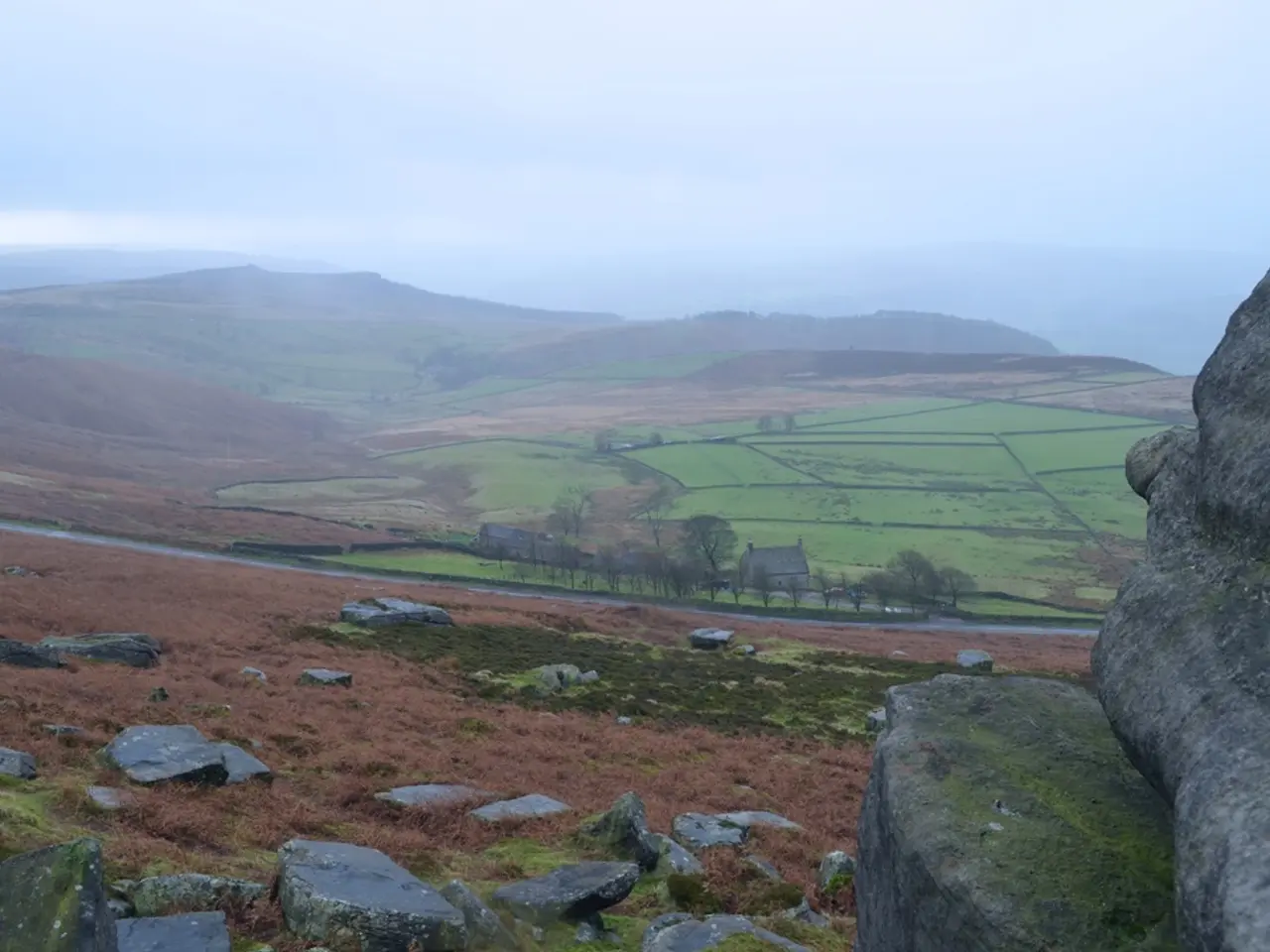Algarve Region in Portugal
In the sun-kissed coastal regions of Portugal, a delicate balance between development and conservation is being navigated. From the quiet, undeveloped beaches of the west coast to the historical charm of the central coast, the country presents a diverse tourism landscape with its fair share of challenges.
The southwest corner of Portugal, home to areas like Melides, Comporta, and Troja, has seen significant overbuilding over the past two decades. Golf courses and concrete jungles, while offering tourist attractions, have proliferated, often at the expense of authentic character. Rapid luxury resort developments have restricted beach access, inflated housing prices, and threatened local identity [1]. To counteract this, the Portuguese government and environmental agencies have pledged stricter enforcement of public access laws along a 45-kilometer stretch of coastline [1].
Labor shortages have emerged as another critical issue. With Portugal's tourism workforce reportedly 19% smaller than pre-pandemic levels, investments in training and workforce development are crucial for sustainable growth [2].
Overtourism is a concern too, with popular areas like the central coast becoming increasingly crowded. Portugal’s 2035 Tourism Strategy aims to address this by promoting diversification of destinations beyond coastal hotspots to include regions like Central Portugal and the Douro Valley [2].
Climate change poses a further challenge, with rising sea levels, hotter summers, and extreme weather impacting beach ecosystems, infrastructure, and visitor experiences. Adaptation measures and increased authenticity in eco-labeling are necessary to avoid greenwashing and build trust among tourists [3].
Complementary initiatives such as the FISATUR project promote sustainable fishing-tourism integration in Atlantic coastal communities by supporting skills development in sustainability and business planning. This boosts environmental stewardship, coastal resilience, and economic diversification aligned with the EU Green Deal and Blue Economy Strategy [4].
The Old Town of Faro, nestled in the central coast, offers a worthwhile cultural attraction. Less spoiled coastal stretches lie to the west of Lagos, another town with historical interest. Golf remains a key tourism product in Portugal, and a study of the sustainable limits of golf development has been undertaken [5].
In summary, Portugal’s sustainable tourism in coastal regions combines regulatory enforcement to secure public access, diversification of tourism products and regions, workforce capacity building, climate adaptation, and community-based sustainable tourism ventures as a holistic approach addressing current challenges [1][2][3][4].
[1] Portuguese Government and Environmental Agencies Pledge Stricter Enforcement of Public Access Laws. (2021). Retrieved from https://www.portugal.gov.pt/noticias/portuguese-government-and-environmental-agencies-pledge-stricter-enforcement-of-public-access-laws
[2] Portugal's 2035 Tourism Strategy. (2021). Retrieved from https://www.portugal.gov.pt/2035-tourism-strategy
[3] Adapting to Climate Change in Portugal's Coastal Regions. (2021). Retrieved from https://www.climateportal.org.pt/en/adapting-to-climate-change-in-portugals-coastal-regions
[4] FISATUR: Promoting Sustainable Fishing-Tourism Integration. (2021). Retrieved from https://www.fisaturalive.eu/
[5] Study on the Sustainable Limits of Golf Development in Portugal. (2020). Retrieved from https://www.golfenvironment.org/study-on-the-sustainable-limits-of-golf-development-in-portugal/
- To mitigate the effects of overbuilding in Portugal's coastal regions, the government and environmental agencies have vowed to enforce public access laws more strictly, particularly along a 45-kilometer stretch of coastline. [1]
- In response to labor shortages in the tourism sector, investments in training and workforce development are essential for sustainable growth, as Portugal's tourism workforce remains 19% smaller than pre-pandemic levels. [2]
- The Old Town of Faro offers a worthwhile cultural attraction, and less spoiled coastal stretches lie to the west of Lagos, another town with historical interest. [5]
- As part of its 2035 Tourism Strategy, Portugal aims to promote diversification of destinations beyond coastal hotspots, including Central Portugal and the Douro Valley, to counteract overtourism in popular areas. [2]




